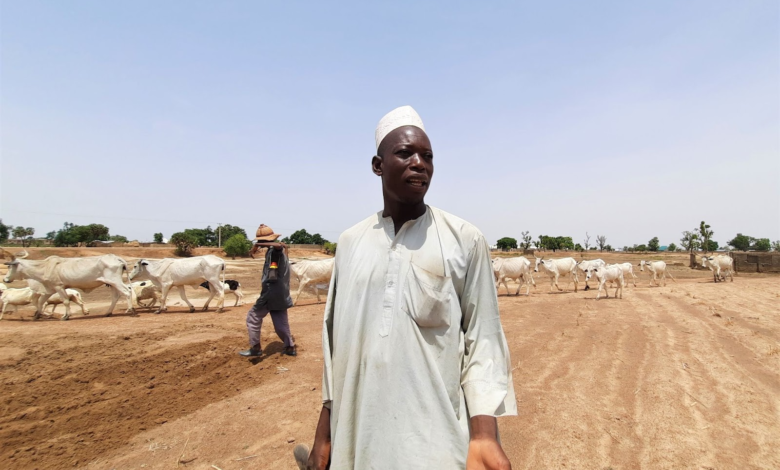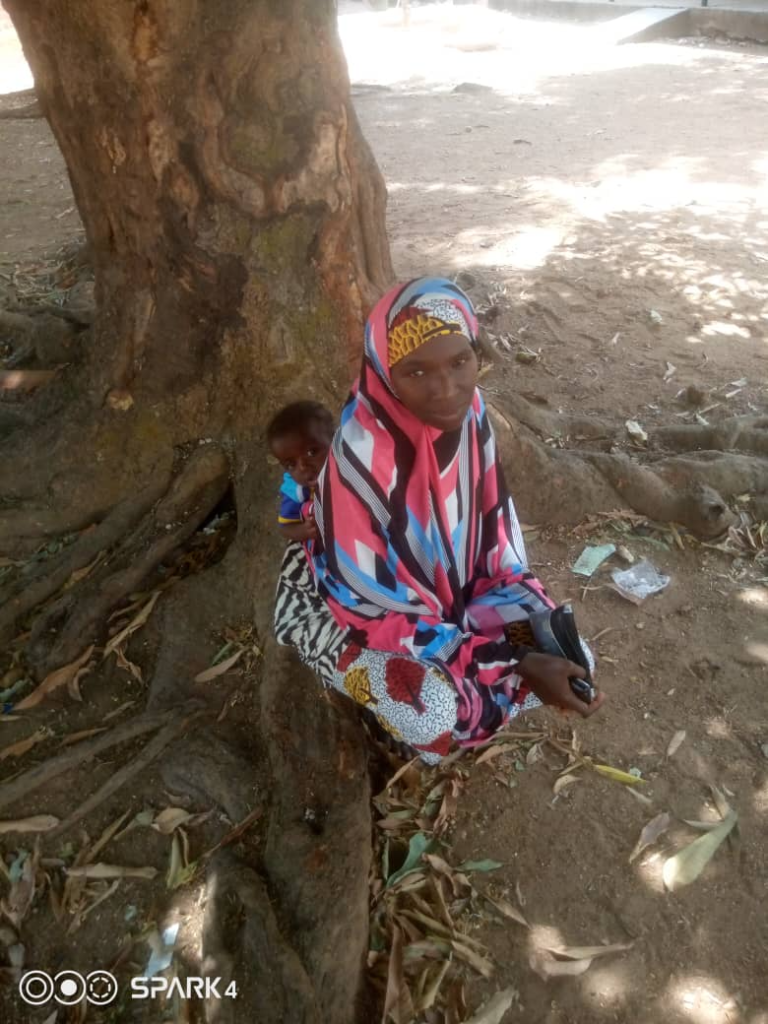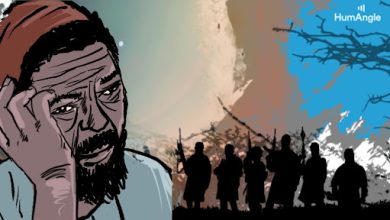The Displaced Herding Families Of Southern Kaduna
Displaced by terrorists since 2018 in the Unguwan Rogo part of Kajuru LGA in northwestern Nigeria, Salisu Muhammad Haji and Hadiza Abdullahi find it difficult to make a living in a new place they now call home.

Salisu Muhammad Haji and his family were not willing to leave Unguwan Rogo, a settlement they had always called home.
Not when they heard about communal clashes in Kasuwan Magani, a trading hub in Kajuru Local Government Area (LGA) of Kaduna State, Northwest Nigeria. Not even after hearing about other episodes in Fulani settlements who came face-to-face with terror groups.
Haji, who is a farmer and herder, grew up in Unguwan Rogo. He had his primary and secondary school education in Kaduna City.
“My father sent me to Kaduna to learn Islamic studies from a religious teacher, but I was able to convince him to let me study western education,” he began.
As far as Haji knew, the village of Unguwan Rogo was small but self-sufficient. They were able to build a school in 2014 and acquire teachers from the local government. But this school would later be burned to the ground during the attack.
“A man from a neighbouring tribe and village told one of us to flee as the attacks were coming nearer to us and a few people decided to run,” Haji, 37, told HumAngle. But his family remained.
That was until the attack in Nov. 2018 changed everything.
Leaving home
One morning, an armed group stormed Unguwan Rogo and the villagers were forced to face their biggest fear – losing their homes.
“We were lucky that none of us got killed but they set fire to our property,” Haji said. His entire family were at home when they heard people screaming
Haji, his wife Adama, and their children ran into the chaos and joined the rest of the villagers running to safety.
‘I wish we didn’t have to leave our home behind because even though life in the village was simple, it was peaceful and satisfactory,” he recalled.
The family were forced to move to a place called Maro, but there were no schools there and the living conditions were unfavourable.
This forced most of the displaced villagers to move again.
“We moved to the IDP camp in Kajuru after two months, which was set up in the Kajuru primary school,” he continued. Here, they were again forced to leave a few weeks later because of the terrible living conditions.
Losing cattle
Haji and his family did not just lose their home. Some of their cattle disappeared during the attacks.
Prior to that, many people had lost their cattle to kidnappers and cattle rustlers who had plagued the area. The losses bit hard.
“Some of these cattle were handed to us from our grandparents but we were lucky to have escaped with our lives,” Haji said.
“Most of the people from the village are not used to living in towns and they found it restricting, so we decided to move to a small Fulani settlement very close to Kajuru town.”
The displaced people did not want to live in a remote place. Kidnappings persisted across the region and they feared another attack.
“A friend of mine got kidnapped last year on his way back from the market, but he got released after the ransom was paid. The lowest ransom I have heard them demand is N500,000.”
Cattle rustling, on the other hand, has caused many deaths and displacement of communities. It has also financed terror groups and poses a great risk in many regions across the Sahel.
When owners put up a fight, the rustlers do not hesitate to shoot. However, in many occasions they simply forcefully cart away the animals.
It was because of a similar incident in 2019 that Haji decided to move his family back to Kajuru.
“I was away in Kaduna when I learnt that the cattle rustlers had attacked our compound in order to steal my neighbour’s cattle,” he narrated.
The rustlers kept shooting to scare them into submission and they had no choice but to run.
His wife, Adama, was pregnant at the time, and the shock of the incident caused complications that raised her blood pressure.
“I apologized to my mother and told her we can’t live there anymore and I found a house to rent in Kajuru.
“Many of us can only farm in other people’s farms and our children can attend the local school here.”
The recurring attacks in Southern Kaduna has left many people dead and displaced, with villages either razed to the ground or abandoned by its inhabitants. In many cases, reports portray herders like Haji as key perpetrators in the violence while cases of violence against them remain underreported.
The International Organisation for Migration (IOM), an agency of the United Nations, reported that “between 13th and 21st March, 2021, the fear of attacks by bandits have led to a fresh wave of population displacement.”
In 2022, the president of the Southern Kaduna People’s Union (SOKAPU), Jonathan Asake said over 108 communities have been displaced in the region.

Unbroken bond
Haji is not alone. Like him, Hadiza Abdullahi lived her entire life at Unguwan Rogo.
As is the case in many Fulani settlements, families live communal lives. These close connections was what brought Haji and Hadiza’s family together. So entertwined are they that they address each other as brother and sister.
“I got married when I was 15 years old, but it is customary to not move in with the husband until after two years,” Hadiza told HumAngle.
Now a mother of three, she reminisced about life in her former village.
“I miss the life back home. I was nursing my second child when the attack happened in Nov. 2018.”
Even now, the image of what happened remains clear in Hadiza’s mind.
They were surrounded in a flash before they realised that they were under attack.
Unlike Haji’s experience where there were no deaths, hers was a huge tragedy. “We lost some relatives and they burned down our house.”
Her family ran into the bushes with one child strapped to her back and another racing by her side.
Source of livelihood gone
Before the attack, Hadiza hawked cow milk in neighbouring villages. “I usually leave home by 11 am and return around 4 pm,” she said.
This part of her struggle is not uncommon among milkmaids in northwestern Nigeria.
Many Fulani women who used to make a living selling cow milk find it hard to get them now due to cattle rustling in their communities, Hadiza explained.
The women usually try to find other settlements they can buy the milk from, but the business does not move as smoothly as it once did. This setback affects their quality of life as the income coming in is limited from both sides – there is the shortage of cattle and also the scarcity of milk.
“I don’t even sell cow milk anymore because of how hard it is to get. My husband rented a farm near us and that is our main source of livelihood,” Hadiza concluded.
Currently, she lives with her family in a small Fulani settlement near Kajuru.
Support Our Journalism
There are millions of ordinary people affected by conflict in Africa whose stories are missing in the mainstream media. HumAngle is determined to tell those challenging and under-reported stories, hoping that the people impacted by these conflicts will find the safety and security they deserve.
To ensure that we continue to provide public service coverage, we have a small favour to ask you. We want you to be part of our journalistic endeavour by contributing a token to us.
Your donation will further promote a robust, free, and independent media.
Donate HereStay Closer To The Stories That Matter





Who will help us to report the violent attacks and incessant killing if farmers in Benue State of Nigeria